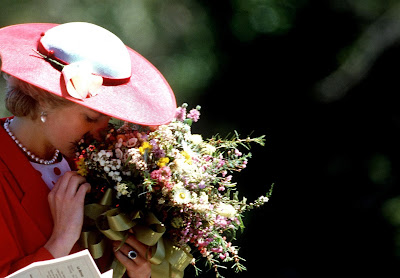Beauty and the Inferno by Roberto Saviano – Review
Duncan Campbell is impressed by the bravery of a man who defied the mafia
Duncan Campbell
Saturday 9 October 2010 00.05 BST
Gomorrah, a blistering expose of the Neapolitan Mafia, the Camorra, by a young Italian reporter, Roberto Saviano, became a bestseller both in Italy and internationally when it was published four years ago. The film based on it was Italy's entry for the 2008 Academy Awards. Both book and film stripped the glamour from the mafia and revealed its protagonists for what they were: ruthless, banal, sociopathic thugs far removed from elegant, Godfatherly sophistication and singing in a very different choir from the Sopranos.
The success of the book has been bittersweet for Saviano. The Camorra wanted to make an example of him for his impudence and issued a death sentence. He was given a round-the-clock police guard and forced to move constantly. Having hunted the mafia and drawn blood, Saviano himself became the quarry.
Now he has published a series of essays, Beauty and the Inferno, in which he reflects on his new life as a fugitive writer and the experiences of others in the same position. "I'm not allowed to go for a walk, even with bodyguards," he explains. "Sometimes I can't stay in the same hotel more than one night at a time . . . more often than not I've stayed in rooms at the carabinieri barracks."
He makes common cause with others, like Salman Rushdie or Anna Politkovskaya, who have also been persecuted for their writing; in the latter's case, fatally. The book is at its best when Saviano describes the strange half-world that he now inhabits. Of a meeting with Rushdie in Stockholm, he writes: "The difference between Rushdie and me is that he was condemned by a regime that does not tolerate expressions that run counter to its ideology. In my country, where censorship does not exist, oversight and indifference take its place."
He is dismayed by the hostile and unsupportive reaction Gomorrah generated among some of his contemporaries. "Silence is the guiltiest accomplice," he notes.
Joe Pistone, the FBI man who went undercover in the 70s under the name of Donnie Brasco and whose part was played by Johnny Depp in the eponymous film, shares with Saviano the experience of being under a mafia death sentence and is sanguine about the way the movie sentimentalised him. "They made it seem like I was sorry when people ended up in prison or dead," he tells Saviano. "They didn't want to give the impression that I was heartless. But when I became Donnie Brasco, I really did become heartless." In one essay, Saviano praises the writing of Michael Herr, author of Dispatches, whom he has clearly found inspirational. "Conventional journalism couldn't shed light on this (Vietnam) war anymore than the power of conventional weapons could win it," said Herr, and clearly Saviano feels the same about his style of writing and the mafia.
A sense of frustration and claustrophobia haunts the book. Saviano is, at heart, a reporter. He needs to get out and about, talk to people, test assumptions; not the easiest of tasks when you have a police escort and no home base. He is, on the one hand, determined to show the Camorra that he will not be silenced by their threats – this book is his "sod 'em" to their Gomorrah – but there is also a tacit recognition that, if they have failed to murder him so far, they have nonetheless taken him off the streets of Italy.
The book, which includes material written between 2004 and 2009, is not well served by its translation. Obviously, it's difficult to render colloquial reportage in a form that is both readable and faithful to the original, but too often a clunky or over-literal phrase derails the narrative. "Those who hold positions of power continue to talk about culture and electoral democracy, the shooting stars of byzantine culture, and those who are opposed seem to be devoured by the fear of not being part of the business rather than interested in modifying its mechanism," is just one sentence that should have had an editor reaching for a big blue pen. Also, some of the essays, like those on the Barcelona footballer Lionel Messi, or the Italian Olympic boxing team, are dropped in without context, giving the impression that they are there mainly as make-weights in a followup to a bestseller.
This is a sad book in many ways because it illustrates the price that can be paid for courageous writing. Still, at a time when so much of the media is filled with the triviality of celebrity and when elaborate newspaper investigations are aimed at such harmless targets as errant footballers or drug-taking models, it is good to be reminded of the raw bravery of the Savianos of this world and to salute them for the sacrifices they have made in their challenges to power.
Duncan Campbell's If It Bleeds is published by Headline Review.











